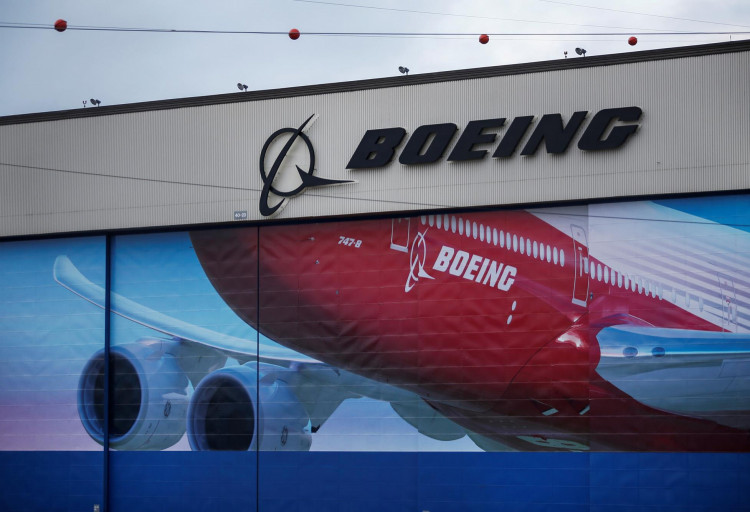Boeing Co. is preparing to seek Federal Aviation Administration approval to increase monthly production of its 737 Max aircraft to 42 units later this year, as the aerospace giant posted a narrower first-quarter loss and saw revenue rise amid improved jet deliveries.
The company reported a net loss of $31 million for the quarter ended March 31, a significant improvement from the $355 million loss in the same period last year. Quarterly revenue rose 18% to $19.5 billion, beating Wall Street expectations of $19.45 billion, according to data from LSEG.
"We are moving in the right direction and making progress as we reported our first-quarter 2025 results today," Boeing CEO Kelly Ortberg said in a memo to employees Wednesday.
Free cash flow usage improved to negative $2.3 billion, compared with negative $3.9 billion a year ago. Boeing's shares jumped 4.2% in premarket trading on the news.
The company's commercial airplane division led the rebound, with revenue climbing 75% year-over-year to $8.1 billion. Jet deliveries rose to 130 planes in the first quarter, up from 83 a year earlier.
Ortberg, who took over leadership in 2024 amid quality-control failures and labor unrest, is overseeing a turnaround focused on stabilizing operations and restoring confidence. The push to raise 737 Max output comes after a door panel incident in January 2024, where a plug blew out midair on a newly delivered aircraft. Though no one was seriously hurt, the FAA imposed a production cap of 38 jets per month until safety reviews could be completed.
Ortberg noted that the company's progress on safety and quality control allows it to now request FAA approval to raise the cap. "From delivering more airplanes to scoring a transformational win for the fighter of the future, there is a lot of good work happening across our teams," he said.
Boeing's recovery, however, is being tested by external headwinds. Global tariffs linked to President Donald Trump's trade conflict have increased costs for aircraft and imported parts. Ortberg said in his staff note, "While we are closely watching the developments in global trade, our strong start to the year combined with the demand for airplanes and our half trillion-dollar backlog... gives us the flexibility we need to navigate this environment."
GE Aerospace CEO Larry Culp, whose firm supplies Boeing with engines, said Tuesday he met with Trump and urged duty-free status for the sector. GE and RTX expect trade restrictions to cost them over $1 billion combined this year.
In a move to streamline operations and reduce debt, Boeing on Tuesday announced it would sell parts of its Digital Aviation Solutions business, including its Jeppesen navigation software, to private equity firm Thoma Bravo for $10.55 billion in cash.
Still, not all divisions are rebounding. Boeing's defense unit posted a 9% revenue decline to $6.3 billion amid cost overruns and persistent quality issues. However, the segment received a boost with a new U.S. Air Force contract to build the next-generation F-47 fighter jet.
Despite signs of financial recovery, internal morale remains a concern. A recent company survey showed that only 27% of employees would strongly recommend Boeing as a workplace. Just 46% said they had confidence in senior leadership-down sharply from a decade earlier.






